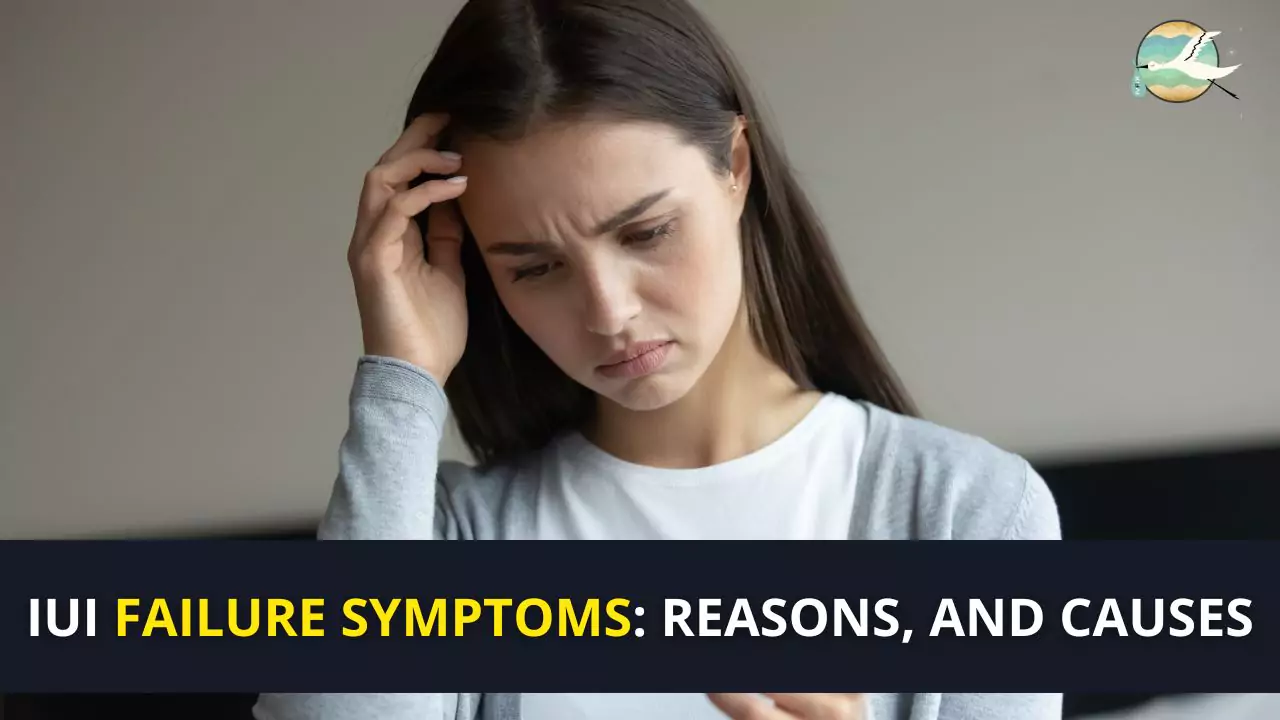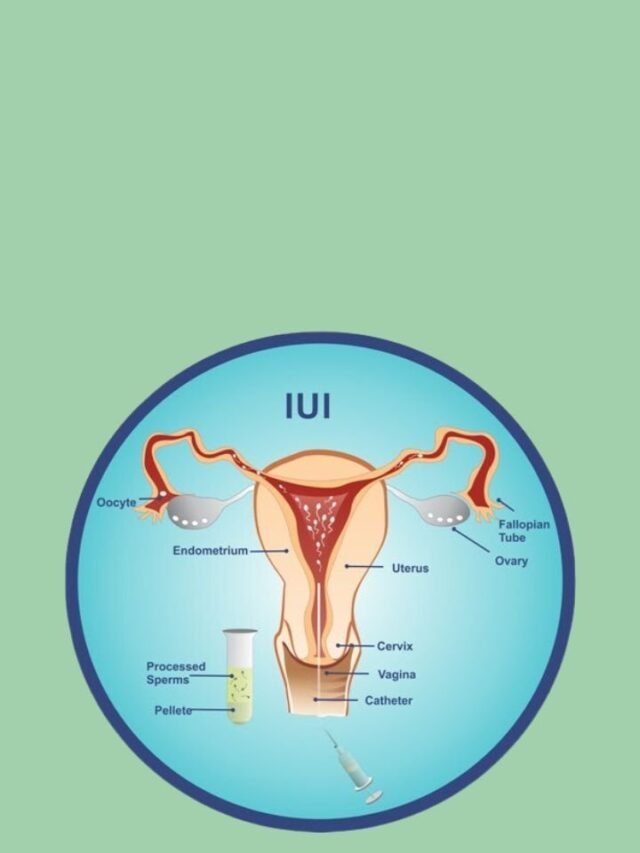Uncover the various IUI failure symptoms, learn about their underlying causes, and discover effective strategies for achieving success.
Table of Contents
If you’ve been trying to start a family and have had Intrauterine Insemination (IUI), you are familiar with the mixture of hope and anticipation that goes along with each treatment. Although you may be optimistic, there may be times when the anticipated result is not realized. An in-depth discussion of IUI failure symptoms is provided in this article, along with information on possible causes and workable alternatives. To help you in your journey to motherhood, let’s talk about the nuances of this subject.
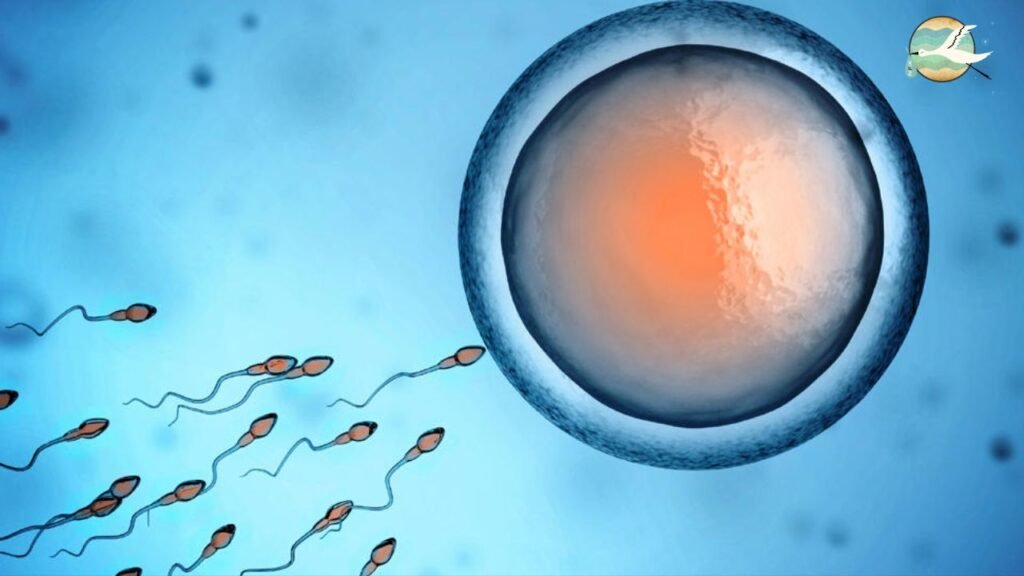
What is IUI?
“Intrauterine Insemination” (IUI) is what it’s called. When couples are having difficulties, it might be a method to support them. In IUI, sperm is directly injected into the uterus of the woman to assist the egg and sperm in fusing and creating a baby. In turn, this raises the possibility of becoming pregnant by facilitating the sperm’s discovery of the egg. Compared to certain other treatments, it is an easier and less expensive option. If a woman’s body has particular problems or if the man’s sperm isn’t very potent, people frequently try IUI when they are having trouble getting pregnant.
IUI Procedure
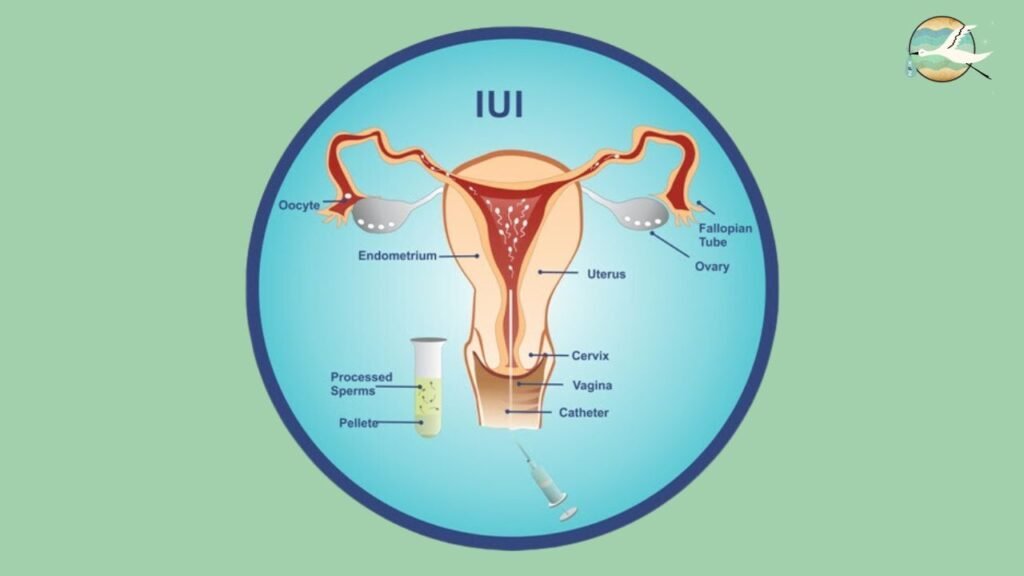
The IUI (Intrauterine Insemination) method is a fertility treatment used to help couples conceive. There are various steps to the procedure. The man first supplies a sperm sample, which is then meticulously treated in a lab to isolate the healthier sperm and remove any potential irritants. Meanwhile, the woman’s menstrual cycle is being monitored to determine the optimal timing for the surgery, which is often during ovulation, when an egg is released. The picked sperm is gently put into the woman’s uterus using a tiny catheter, a painless technique that does not require anesthesia.
After a brief rest, the woman can resume her normal activities, however, intense activities should be avoided. A pregnancy test is performed around two weeks later to determine the success of the IUI. This method improves fertilization chances by getting the sperm closer to the egg and is frequently used when there are minor sperm concerns or challenges with natural conception.
IUI failure symptoms
Here are 10 IUI failure symptoms that might indicate a problem.
1. No Pregnancy Symptoms: If the traditional indicators of pregnancy, such as missed periods, breast pain, and nausea, do not develop after a few weeks following IUI, it may indicate that the operation was unsuccessful.
2. Menstrual Period: If you have a regular monthly cycle around the usual time, it could imply that pregnancy did not occur.
3. Negative Pregnancy Test: If a pregnancy test conducted around two weeks after the IUI comes out negative, it indicates that implantation may not have occurred.
4. No Changes in Basal Body Temperature: A lack of persistent elevated basal body temperature after ovulation may indicate that pregnancy has not occurred.
5. No Implantation Bleeding: Implantation bleeding is mild spotting that can occur when a fertilized egg adheres to the uterine lining. Its absence could suggest that fertilization failed.
6. No Increase in Cervical Mucus: During pregnancy, cervical mucus is typically increased. If this does not occur, the IUI may fail to produce a pregnancy.
7. No Changes in Appetite or Sensitivity to Smells: Pregnancy might cause changes in appetite and increased sensitivity to odors. The absence of these alterations may indicate that the IUI was ineffective.
8. No Breast Changes: Breast changes during pregnancy can include discomfort and enlargement. If these changes are not observed, the IUI may not have resulted in pregnancy.
9. No Positive Ultrasound Results: If an ultrasound performed a few weeks after the IUI reveals no symptoms of pregnancy, the procedure was unsuccessful.
10. No Rise in hCG Levels: After successful implantation, a blood test to determine the levels of the pregnancy hormone hCG should show a rise. If this rise does not occur, the IUI may be unsuccessful.
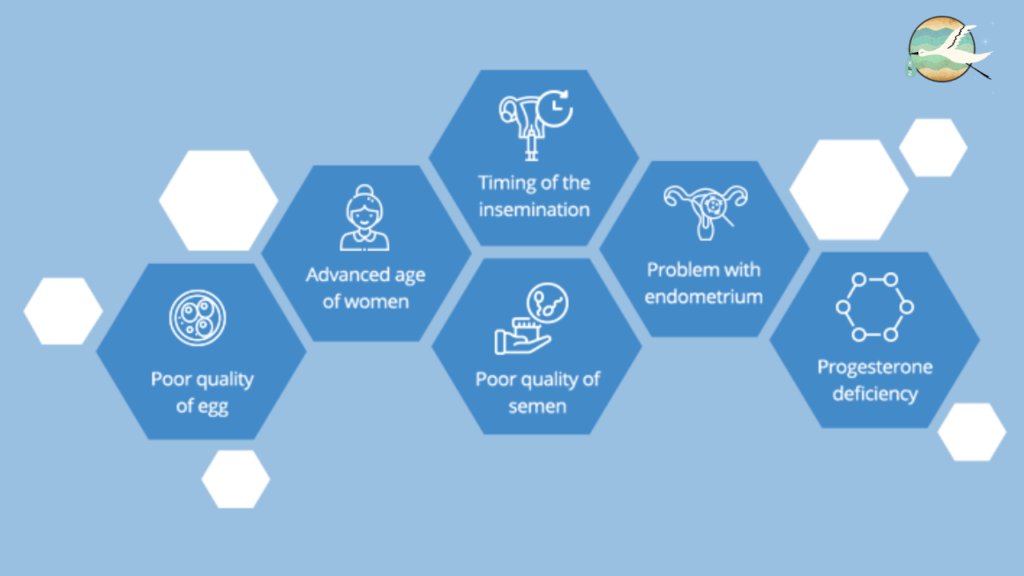
IUI Failure Reasons
Here are 10 possible reasons for IUI failure:
1. Unsuccessful Fertilization: Despite being implanted in the uterus, the sperm may not have effectively fertilized the egg.
2. Poor Sperm Quality: Failure can occur if the sperm used in the IUI process is of poor quality or lacks the potential to fertilize the egg.
3. Timing Issues: If IUI is not performed at the appropriate time with respect to ovulation, the odds of successful fertilization are reduced.
4. Blocked Fallopian Tubes: If a woman’s fallopian tubes become clogged, the egg and sperm may not meet, resulting in a failed pregnancy.
5. Unresponsive Uterine Lining: A nonresponsive uterine lining may not offer the conditions required for the embryo to implant and thrive.
6. Ovulation Disorders: Ovulation irregularity or absence can affect the time of the operation and the possibilities of fertilization.
7. Egg Quality Issues: Poor egg quality can stymie fertilization and implantation.
8. Medical Conditions: Underlying medical disorders, such as hormone imbalances or thyroid issues, can have an impact on IUI success.
9. Age Factors: Even with assisted reproductive procedures such as IUI, advanced mother age can diminish the chances of a successful pregnancy.
10. Unidentified Factors: Despite extensive examination, the specific causes of IUI failure may remain unknown.
It’s essential to remember that each person’s circumstance is unique, and various factors might contribute to the success or failure of an IUI operation. Consultation with a fertility specialist can provide personalized insights and assistance based on individual circumstances.
IUI Failure Causes
Here are 10 possible causes of IUI failure:
1. Sperm Quality Issues: Poor sperm health, such as decreased sperm count, poor motility, or aberrant morphology, can thwart successful fertilization.
2. Timing Problems: Incorrect scheduling of the IUI procedure with respect to ovulation can result in missed fertilization possibilities.
3. Blocked Fallopian Tubes: If a woman’s fallopian tubes become clogged or damaged, the egg and sperm’s trip may be disrupted, preventing fertilization.
4. Ovulation Irregularities: Inconsistent or missing ovulation can impair the availability of an egg for fertilization during the IUI procedure.
5. Unresponsive Uterine Lining: A uterine lining that is thin or insensitive may not provide an optimum environment for embryo implantation.
6. Egg Quality Concerns: Poor egg quality might make fertilization and embryo development difficult.
7. Age-related Factors: Even with assisted reproductive procedures such as IUI, advanced mother age can diminish the chances of a successful pregnancy.
8. Hormonal Imbalances: Hormonal abnormalities can affect natural reproductive processes and have an impact on IUI success.
9. Underlying Health Conditions: Medical conditions such as polycystic ovarian syndrome (PCOS) or endometriosis might have an impact on fertility and IUI results.
10. Unidentified Factors: Due to the complicated interplay between many elements, the specific reasons for IUI failure may remain unknown despite rigorous studies.
Each person’s condition is unique, and a variety of factors can influence the success of an IUI operation. Consultation with a fertility professional can assist in identifying unique issues and developing a customized approach to boost the chances of success.
Why IUI Treatment fails?
IUI can fail for a variety of obvious reasons. For starters, if the sperm utilized in the operation isn’t strong enough, it won’t be able to efficiently fertilize the egg. Furthermore, if the IUI is performed at the wrong time in the woman’s menstrual cycle, the egg and sperm may not have the opportunity to meet. Blocked fallopian tubes can prevent the egg and sperm from joining, and low egg quality can also make fertilization difficult.
Age also plays a role, as being older can reduce the chances of IUI success. Hormonal imbalances and health issues may interfere with the process, as may a stressful lifestyle or harmful behaviors. It’s vital to remember that success doesn’t always come easily. Working closely with a healthcare physician can assist in identifying and addressing these issues, increasing the likelihood of successful IUI outcomes.
Conclusion: IUI failure symptoms
In conclusion, IUI can meet difficulties that lead to failure, but recognizing the various causes is critical. Sperm quality, timing concerns, blocked fallopian tubes, egg abnormalities, age, hormonal imbalances, health disorders, stress, and lifestyle variables can all play a role. It is critical to collaborate closely with a healthcare professional to identify specific concerns and customize the treatment accordingly. While setbacks might be disappointing, each step delivers essential information that helps you make informed decisions about your reproductive journey. Open communication with your doctor, as well as remaining patient and happy, will lead you to the greatest potential outcomes.
FAQs about IUI Failure Symptoms
Q: Why did my IUI fail?
A: IUI can fail for a variety of reasons, including poor sperm quality, timing challenges, blocked tubes, egg problems, age-related variables, hormone imbalances, medical diseases, stress, or lifestyle concerns.
Q: How can I improve my chances after a failed IUI?
A: It is critical to consult with your doctor. They can assess your specific circumstances, make necessary adjustments to the treatment plan, and recommend prospective improvements for the next attempt.
Q: How many IUIs can fail before trying something else?
A: The number of failed IUIs before attempting a different method varies according to individual circumstances. Your doctor will advise you depending on factors like your age, health, and the precise causes of your failure.
Q: Does stress affect IUI success?
A: Stress can have an effect on fertility, including IUI success. Stress management approaches or counseling may have a favorable impact on outcomes.
Q: Should I change my lifestyle after a failed IUI?
A: Adopting a healthier lifestyle, which includes a balanced diet, exercise, and avoiding dangerous habits, can help with fertility.
Q: Can IUI fail due to age?
A: Yes, age can have an impact on IUI success. Fertility falls with age, limiting pregnancy chances, particularly for women over 35.
Q: Is there a higher chance of success with multiple IUI attempts?
A: Multiple tries can enhance success rates, but each case is unique. Discussing your circumstances with your doctor can help you identify the best course of action.
Q: What are some alternative options if IUI fails repeatedly?
A: If IUI fails regularly, your doctor may recommend more advanced therapies such as in vitro fertilization (IVF) or another diagnostic test to detect underlying abnormalities.
Q: When should I consider seeking a specialist’s help after failed IUIs?
A: If you’ve had numerous failed IUI attempts, seeing a fertility doctor is a smart idea. They can conduct a thorough review and advise on the best course of action.
Q: Can IUI fail even with healthy sperm?
A: Yes, even with good sperm, IUI can fail owing to other circumstances such as timing, egg quality, or uterine lining abnormalities.

